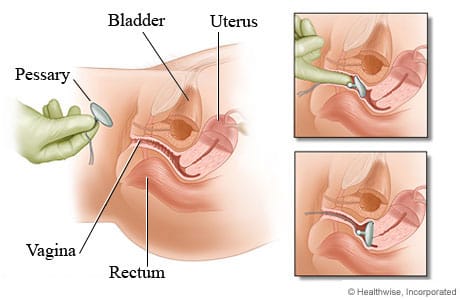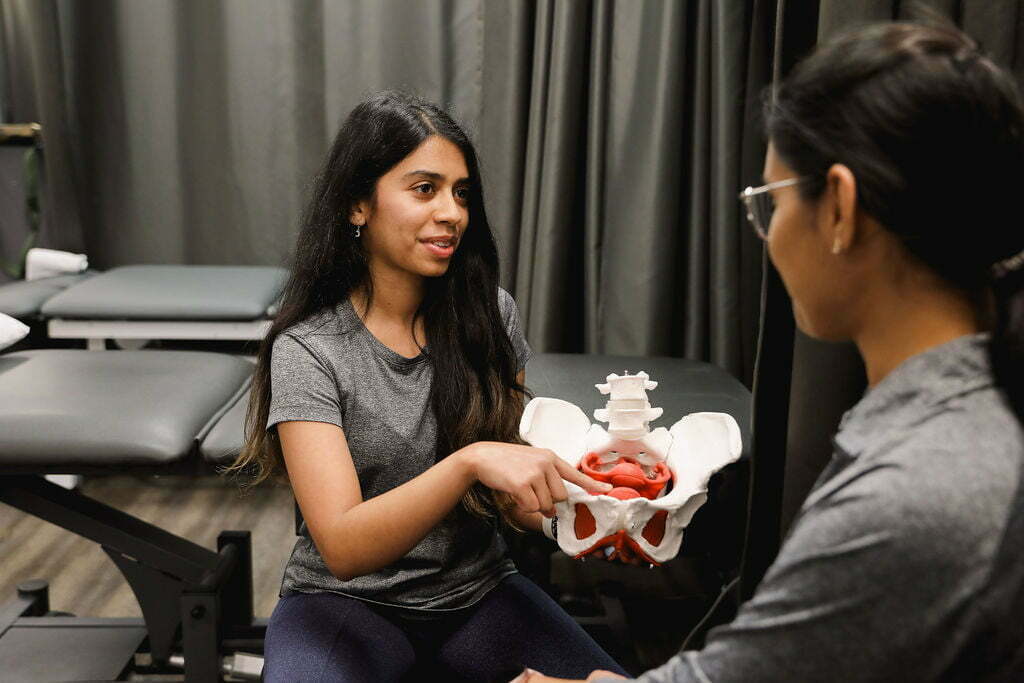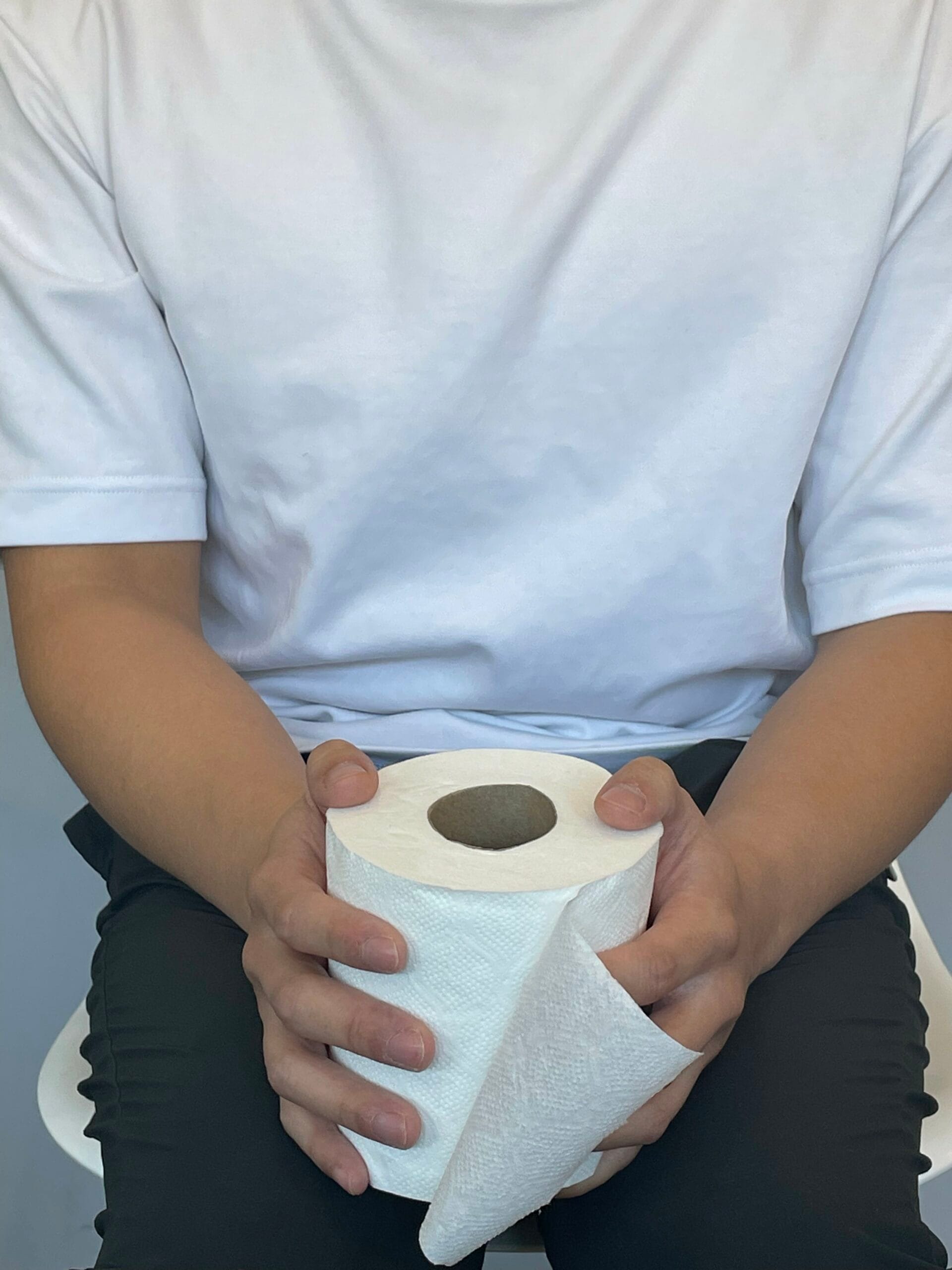When it comes to sensitive health concerns, finding safe, respectful, and expert care is key. Pelvic floor dysfunction is incredibly common – but too often ignored due to embarrassment or fear of being misunderstood. At Triangle Physiotherapy Toronto, we provide private pelvic physiotherapy sessions in a welcoming, confidential environment where you are fully supported throughout your healing journey.
Here’s what you should know before booking your first pelvic health assessment – and why it might be the most important step you take for your overall well-being.
Why Book a Pelvic Health Assessment?
Pelvic floor issues affect more people than you might think. These include:
- Leaking when coughing, laughing, or exercising
- Pelvic pain or pressure
- Pain during intimacy
- Postpartum recovery concerns
- Constipation or bowel dysfunction
- Recovery after prostate or abdominal surgery
These symptoms can impact physical comfort, mental health, and day-to-day life. Pelvic physiotherapy offers a safe, non-invasive way to treat the root cause – often without medication or surgery.
What to Expect at Triangle Physiotherapy Toronto?

We understand that pelvic health is a personal topic. That’s why our Toronto location prioritizes confidentiality, comfort, and open communication at every step.
Here’s what your private assessment involves:
1. Pre-Appointment Consultation
Once you book your session, you’ll receive a brief intake form that helps your therapist understand your symptoms, medical history, lifestyle, and concerns. This allows us to tailor the session specifically to you.
2. One-on-One, Private Session
All pelvic health sessions at Triangle Physiotherapy Toronto are conducted in private treatment rooms – not shared spaces. You’ll meet with a registered pelvic physiotherapist trained in trauma-informed care and sensitive health communication. We take time to listen and explain everything clearly before beginning the physical assessment.
3. Physical Evaluation
If appropriate and with your full consent, the therapist may perform a gentle internal or external exam to assess your pelvic floor muscles. This step helps us understand strength, tension, and coordination levels to build a precise treatment plan. You are in complete control throughout – nothing happens without your comfort and consent.
What Happens Next?
Your physiotherapist will walk you through a personalized treatment plan that may include:
- Breathing and core engagement techniques
- Pelvic floor strengthening or relaxation exercises
- Manual therapyPostural corrections and ergonomic advice
- Education on bladder/bowel habits or pain management strategies
We also provide home exercises and ongoing support to help you progress between sessions.
Why Triangle Physiotherapy Toronto?
Our goal is to make private pelvic physiotherapy approachable, respectful, and results-driven. With flexible scheduling, direct billing, and a convenient Toronto location, we make it easy to start care without unnecessary stress.
We’ve helped hundreds of clients feel stronger, more confident, and pain-free through compassionate pelvic health care. Whether you’re navigating postpartum recovery, persistent pelvic pain, or just want to feel more in control of your body, we’re here to help.
Take the First Step – Confidently
Booking a confidential pelvic health assessment doesn’t have to feel overwhelming. At Triangle Physiotherapy Toronto, your comfort and care come first.
Book your private session today and take charge of your health, your way.
Your pelvic floor may be out of sight, but its health plays a central role in how you move, feel, and live every day. From bladder control to core stability and postpartum recovery, pelvic health issues can affect all genders and age groups – often silently.
At Triangle Physiotherapy North York, we offer compassionate, specialized care for individuals experiencing pelvic floor dysfunction. Our goal is simple: help you understand what’s happening in your body, create a path toward recovery, and give you the tools to regain confidence in your daily life.
Signs It’s Time to See a Pelvic Health Physiotherapist
Pelvic health symptoms often get dismissed or misunderstood. But if left untreated, they can affect everything from your mobility to mental wellbeing. Here’s when you should consider seeing a pelvic physiotherapist:
- Ongoing pelvic pain or pressure
- Leaking urine when sneezing, laughing, or exercising
- Discomfort during sexual activity
- Constipation or painful bowel movements
- Difficulty resuming exercise after pregnancy or surgery
- A feeling of heaviness or instability in the hips or core
These symptoms are common, but they’re not normal. The earlier you address them, the more effective your treatment can be.
How Pelvic Physiotherapy Helps You Heal
At Triangle Physiotherapy North York, we take a whole-person approach. We look beyond just the symptoms and focus on recovery goals that matter to you – whether that’s returning to sport, managing chronic conditions, or simply feeling at ease in your body.
Here’s what our pelvic health treatments may include:
- Targeted pelvic floor exercises to build strength and control
- Manual therapy to reduce muscle tension or overactivity
- Education on movement, posture, and daily habits that support healing
- Breath and core coordination training for long-term stability
- Postpartum and post-surgical support tailored to your unique timeline
You’ll leave each session not just with progress, but with understanding – so you feel empowered between visits, too.
Why Choose Triangle Physiotherapy North York?

We know it’s not always easy to talk about pelvic health. That’s why our team creates a safe, welcoming environment where your questions are heard and your privacy respected.
Here’s what you can expect:
- One-on-one sessions in private rooms
- Experienced clinicians with advanced training in pelvic health
- Flexible hours including evenings and weekends
- Direct billing to most insurance providers
- A personalized treatment plan that evolves with your recovery
Our North York clinic is committed to making high-quality pelvic physiotherapy accessible, effective, and grounded in education.
Take the First Step Toward Lasting Relief
Whether you’re navigating postpartum recovery, managing chronic discomfort, or simply want to better understand your body – Triangle Physiotherapy North York is here to help. You deserve care that not only treats symptoms, but supports your journey toward lifelong pelvic health. Book your assessment today, and let’s start building your recovery plan – together.
Pubic bone pain after giving birth, also known as postpartum pubic symphysis diastasis or symphysis pubis dysfunction (SPD), is a condition that affects some women following childbirth. This pain is usually centered around the pubic symphysis, the joint at the front of the pelvis where the two halves of the pelvic bone meet.
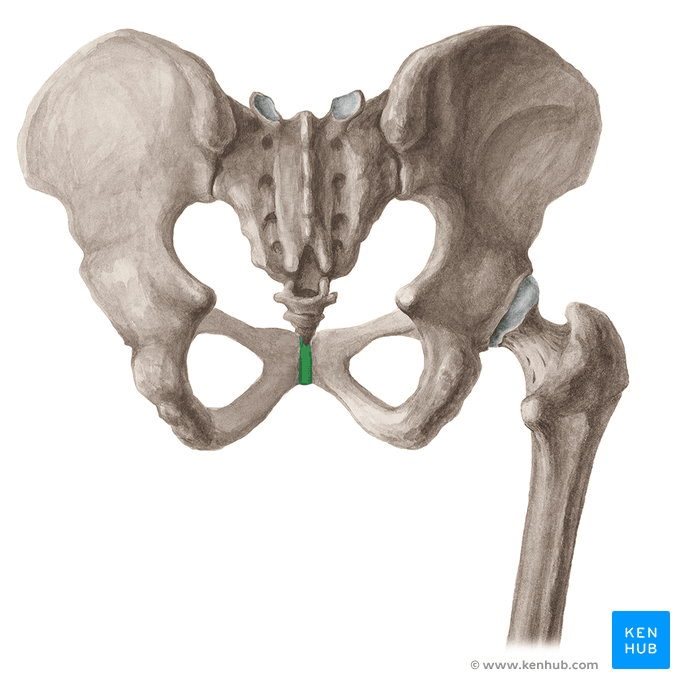
What are the causes of post-partum pubic bone pain?
- Hormonal Changes: During pregnancy, the body releases the hormone relaxin, which loosens the ligaments in the pelvis to prepare for childbirth. This can sometimes lead to instability or separation of the pubic symphysis.
- Physical Stress: The process of labor and delivery can put significant strain on the pelvic area, particularly if the baby is large, labor is prolonged, or delivery involves interventions such as forceps or vacuum extraction.
- Pre-existing Conditions: Women who had SPD or pelvic girdle pain during pregnancy are more likely to experience pubic bone pain postpartum.
What are the symptoms of symphysis pubis dysfunction (SPD)?
Pain:
- Burning, shooting, grinding or stabbing
- Mild or prolonged
- Usually relieved by rest
- Radiating to the back, abdomen, groin, perineum and legs
- Disappears commonly after giving birth (not in every case)
- Discomfort sense onto the front of the joint
- Clicking of the lower back, hip joints and sacroiliac joints when changing position
- Difficulty in movements like abduction and adduction
Locomotor difficulty:
- Walking
- Ascending or descending stairs
- Rising from a chair
- Weight-bearing activities
- Standing on one leg
- Turning in bed
- Depression, possibly due to the discomfort
How is pubic bone pain treated?
- Rest and Activity Modification: Reducing activities that exacerbate pain, such as standing for long periods, lifting heavy objects, or walking long distances.
- Pelvic Physiotherapy: A physiotherapist can provide exercises to strengthen the pelvic floor, abdominal, and hip muscles, and help stabilize the pelvic area. Manual therapy may also be used to realign the pelvis.
- Pain Relief: Over-the-counter pain medications such as acetaminophen or non-steroidal anti-inflammatory drugs (NSAIDs) may be recommended. Always consult with a healthcare provider before taking any medication, especially if breastfeeding.
- Supportive Devices: Wearing a pelvic support belt can help stabilize the pelvis and reduce pain.
- Heat and Cold Therapy: Applying heat or cold packs to the affected area can help reduce pain and inflammation.
How can a pelvic health physiotherapist help with pubic bone pain?
A pelvic health physiotherapist can be of immense help with symphysis pubis dysfunction (SPD). A pelvic health physiotherapist can provide:
- Guidance on movement techniques for daily activities such as climbing stairs, bending, lifting, and feeding the baby.
- Education on gradually advancing exercises aimed at neuromuscular re-education, core stability, and proper posture.
- Hands-on therapy, including pelvic evaluations and muscle energy techniques to correct pelvic alignment.
- Evaluations to identify tissue dysfunction or lack of coordination.
Where can I find a pelvic health physiotherapist in Mississauga?
We have 8 locations with pelvic health physiotherapists to help you.
- Pelvic Health Physiotherapy Etobicoke – Triangle Physiotherapy Etobicoke
- Oakville Pelvic Health – Triangle Physiotherapy Oakville
- Pelvic Health Physiotherapy North York – Triangle Physiotherapy North York
- Mississauga Pelvic Health – Triangle Physiotherapy Mississauga
- Downtown Pelvic Health – Triangle Physiotherapy King West
- Uptown Toronto Pelvic Health – Triangle Physiotherapy Lawrence Park
- Pelvic Physiotherapy Downtown Toronto – Triangle Physiotherapy Queens Quay
- Mississauga Pelvic Health – Triangle Physiotherapy Erin Mills
Recovering from pubic bone pain after giving birth can be supported through targeted physiotherapy. If you’re looking for specialized care, consider physiotherapy in Etobicoke, Oakville, North York, Toronto, Lawrence Park, Queens Quay, Erin Mills, Mississauga, or Liberty Village. Experienced physiotherapists in these areas can help you manage pain and regain strength and mobility through personalized treatment plans.
March 8th marks International Women’s Day and Triangle Physiotherapy is proud to be able to empower women to advocate for themselves and their health needs.
Our goal is to encourage women to focus on their health, both, physical and mental. Build your healthcare team and schedule regular visits, in addition to exercising regularly and eating healthy.

Women’s Health and the Pelvic Floor
Women’s health is intricately connected to the well-being of the pelvic floor, a group of muscles, ligaments, and tissues supporting the uterus, bladder, and rectum. Maintaining a healthy pelvic floor is crucial for various functions, including urinary and bowel control, sexual function, and providing support during pregnancy. Pregnancy, childbirth, hormonal changes, and aging can impact the pelvic floor, leading to issues like incontinence, pelvic organ prolapse, and sexual dysfunction.
Maintaining a healthy lifestyle, proper posture, and seeking guidance from a pelvic health physiotherapist are essential for women’s pelvic floor health. Awareness and proactive care contribute to overall well-being, enabling women to lead active and fulfilling lives while addressing potential pelvic floor challenges.
What are the symptoms of Pelvic Floor Dysfunction?
Pelvic Floor Dysfunction (PFD) can manifest through various symptoms, which may vary in intensity and duration. Common signs of PFD include:
- Urinary Issues:
- Urinary incontinence: Involuntary leakage of urine.
- Frequent urination: The need to urinate more often than usual.
- Difficulty emptying the bladder: Struggling to fully release urine.
- Bowel Issues:
- Constipation: Difficulty passing stools or infrequent bowel movements.
- Straining during bowel movements: Experiencing difficulty while trying to have a bowel movement.
- Pelvic Pain:
- Pelvic pain or discomfort: Discomfort in the pelvic region, which may be persistent or intermittent.
- Pain during sexual intercourse: Discomfort or pain during sexual activity.
- Muscle Tension:
- Tight or spasming pelvic muscles: Increased muscle tension in the pelvic floor.
- Pelvic Organ Prolapse:
- The feeling of pressure or fullness in the pelvic area: Sensation of something bulging or descending into the vagina.
- Lower Back Pain:
- Chronic lower back pain: Discomfort or pain in the lower back region.
- Changes in Posture:
- Altered posture: Changes in the alignment of the spine and pelvis.
How a Pelvic Health Physiotherapist can help and what to expect?
A Pelvic Health Physiotherapist specializes in assessing and treating conditions related to the pelvic floor and surrounding areas. Here’s how they can help and what to expect during a session:
- Assessment:
- A thorough assessment of your medical history, pelvic health, and relevant symptoms.
- Physical examination, which may include internal and external assessments to evaluate the strength, flexibility, and coordination of the pelvic floor muscles.
- Education:
- Detailed explanation of pelvic anatomy and the role of pelvic floor muscles in various functions.
- Guidance on lifestyle factors, posture, and habits that may contribute to pelvic health issues.
- Pelvic Floor Exercises:
- Prescribing personalized pelvic floor exercises, to strengthen or relax specific muscles based on the assessment findings.
- Teaching proper technique and ensuring exercises are performed correctly.
- Manual Therapy:
- Hands-on techniques to release tension in the pelvic floor muscles or surrounding tissues.
- Myofascial release and trigger point therapy to address muscle knots or tightness.
- Biofeedback:
- Using biofeedback tools to provide real-time information about pelvic floor muscle activity.
- Assisting individuals in learning how to control and coordinate their pelvic floor muscles.
- Behavioral Strategies:
- Implementing behavioral strategies for managing and improving bladder and bowel function.
- Developing strategies for optimizing pelvic health during daily activities.
Where can I find a pelvic health physiotherapist in Mississauga?
We have 8 locations with pelvic health physiotherapists to help you.
- Pelvic Health Physiotherapy Etobicoke – Triangle Physiotherapy Etobicoke
- Oakville Pelvic Health – Triangle Physiotherapy Oakville
- Pelvic Health Physiotherapy North York – Triangle Physiotherapy North York
- Mississauga Pelvic Health – Triangle Physiotherapy Mississauga
- Downtown Pelvic Health – Triangle Physiotherapy King West
- Uptown Toronto Pelvic Health – Triangle Physiotherapy Lawrence Park
- Pelvic Physiotherapy Downtown Toronto – Triangle Physiotherapy Queens Quay
- Mississauga Pelvic Health – Triangle Physiotherapy Erin Mills
On International Women’s Day, let’s celebrate the strength and resilience of women everywhere. For those seeking expert support for their health and wellness, consider physiotherapy in Etobicoke, Oakville, North York, Toronto, Lawrence Park, Queens Quay, Erin Mills, Mississauga, or Liberty Village. Skilled physiotherapists in these areas are committed to empowering women through personalized care and treatment plans.
Triangle Physiotherapy in Mississauga is a full-service clinic that offers specialized services like Pelvic Health Physiotherapy. Our pelvic health physiotherapists are trained professionals who, apart from being experts in their field, are also empathetic individuals who understand the sensitive nature of the conditions that make people seek pelvic health physiotherapy.
Tell me more about your Mississauga Pelvic Health physiotherapists.

Our Mississauga Pelvic Health physiotherapists have training in the field of pelvic health physiotherapy and are committed to providing the best care to the community in Mississauga, be it new moms, women with prolapse or incontinence issues, pessary fittings, labour and delivery support, and more. We also have a pelvic health physiotherapist who is trained to help children. Our pelvic health physiotherapists are also able to help men with their pelvic health issues.
What type of conditions can a pelvic floor physiotherapist treat?
Some of the conditions treated by our Mississauga Pelvic Health physiotherapists are:
- Incontinence (urinary and fecal)
- Pelvic organ prolapse and pessary fittings
- Constipation
- Diastasis recti
- Vaginismus
- Pelvic pain
- Pelvic girdle pain during pregnancy and postpartum)
- Coccydynia (tailbone pain)
- Pudendal neuralgia
- Interstitial cystitis
- Female and Male Sexual dysfunction
- Prostatitis
- Rectal pain and dysfunction
- Irritable bowel syndrome
- Anal incontinence
- Anal fissures and fistulas
- Anal neuralgia
- Rectal prolapse
I just gave birth recently. How soon should I see a pelvic health physiotherapist
The pelvic floor muscles may get stretched or damaged during delivery, whether by C-Section or vaginal. This may cause issues of the pelvic floor that manifest as urinary or fecal incontinence, urinary urgency or frequency, pain during sexual activity, pelvic organ prolapse, pelvic pain, lower back pain, diastasis recti, or scar pain. Many of these issues can be addresed by pelvic health physiotherapy, however, our pelvic physiotherapists in Mississauga recommend waiting at least six weeks after delivery to allow the body time to heal from childbirth.
Can I speak to a pelvic health physiotherapist in Mississauga prior to booking a consultation?
We can certainly connect you with the best pelvic floor physiotherapist in Mississauga that can answer any questions you may have. Click here to book a discovery call.
Where can I find a pelvic health physiotherapist in Mississauga?
We have 8 locations with pelvic health physiotherapists to help you.
- Pelvic Health Physiotherapy Etobicoke – Triangle Physiotherapy Etobicoke
- Oakville Pelvic Health – Triangle Physiotherapy Oakville
- Pelvic Health Physiotherapy North York – Triangle Physiotherapy North York
- Mississauga Pelvic Health – Triangle Physiotherapy Mississauga
- Downtown Pelvic Health – Triangle Physiotherapy King West
- Uptown Toronto Pelvic Health – Triangle Physiotherapy Lawrence Park
- Pelvic Physiotherapy Downtown Toronto – Triangle Physiotherapy Queens Quay
- Mississauga Pelvic Health – Triangle Physiotherapy Erin Mills
“Finding the right pelvic health physiotherapist is crucial for effective treatment and recovery. Triangle Physiotherapy offers expert care across the GTA, including Physiotherapy in Etobicoke, Oakville, North York, Toronto, Lawrence Park, Queens Quay, Erin Mills, Mississauga, and Liberty Village. Our skilled physiotherapists specialize in pelvic health, providing personalized treatment plans to help you achieve the best possible outcomes.”
A pessary is a medical device designed to be inserted into the vagina to provide support for pelvic organs or to treat certain gynecological conditions. It is typically made of silicone or plastic and comes in various shapes and sizes to accommodate different needs.
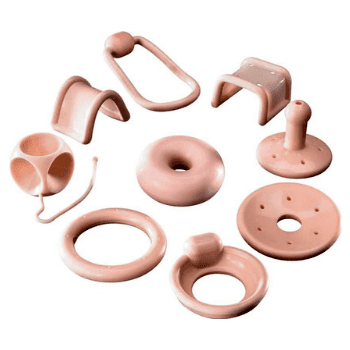
What is the purpose of a pessary?
The purpose of a pessary is to support the pelvic organs and alleviate symptoms of pelvic organ prolapse or urinary incontinence. It helps to hold the organs in place and improve their function.
Who might need a pessary?
Doctors commonly recommend pessaries for women who experience pelvic organ prolapse, which happens when the pelvic organs, such as the uterus, bladder, or rectum, descend from their normal positions. Pessaries can also manage stress urinary incontinence, a condition where involuntary leakage of urine occurs during activities that increase abdominal pressure, such as coughing or lifting.
How is a pessary inserted?
During a pelvic examination, a healthcare provider usually inserts the pessary. The healthcare provider folds the pessary and inserts it into the vagina. Once inside, the pessary opens up and provides support to the pelvic organs. The specific method of insertion may vary depending on the type of pessary being used.
How many appointments will I need?
Typically, you will require a minimum of three appointments to ensure that your pessary is doing what it needs to.
Do I need a doctor’s note to get fitted for a pessary?
No, you don’t need a doctor’s note to see the pelvic health physiotherapist, however, if your insurance requires one for reimbursement then you need to get one. Also if the therapist decides after assessing you, that you will benefit from a pessary then you will be provided with a clearance letter that will need to be signed by your family dr or your ob-gyn prior to fitting.
Are pessary fitting appointments covered by insurance?
Yes, the services are covered under physiotherapy coverage.
Does Triangle Physiotherapy do pessary fittings?
This service is currently provided at 4 of our locations in Toronto and Mississauga.
a. King West
c. North York
d. Mississauga
Who provides pessary fittings at Triangle Physiotherapy?
Some of our pelvic health physiotherapists at our Toronto Pessary Clinics and Mississauga Pessary Clinic are trained to do pessary fittings and insertions. Schedule an appointment to see if a pessary can help you.
How does the process work?
When you come in for your initial assessment, the therapist will do a pelvic assessment as well as take the measurement for the pessary. At your 2nd appointment, you will be fitted with a pessary device. You will have a follow-up appointment after 2-3 weeks to check if everything is ok and that there is no redness or infection. The pelvic physiotherapists will also explain to you how to take it out and clean it.
How can I find a pelvic health physiotherapist who does pessary fittings near me?
We have 4 locations with pelvic health physiotherapists that do pessary fittings to help you.
- Pessary Fittings North York – Triangle Physiotherapy North York
- Mississauga Pelvic Health, Mississauga Pessary Fitting – Triangle Physiotherapy Mississauga
- Toronto Pessary Clinic – Triangle Physiotherapy King West
- Uptown Toronto Pessary Clinic – Triangle Physiotherapy Lawrence Park
A pessary can be an effective non-surgical option for managing pelvic organ prolapse, and combining it with pelvic floor physiotherapy can enhance results. If you are looking for professional physiotherapy services to support your pelvic health, consider clinics in physiotherapy Etobicoke, Oakville, North York, Toronto, Lawrence Park, Queens Quay, Erin Mills, Mississauga, and Liberty Village. These locations offer specialized care and personalized treatment plans to help manage prolapse symptoms and improve quality of life.
Written by Roshni Ravi, Pelvic Health Physiotherapist.
Sexual health is an important aspect of overall health and well-being, but it’s not always an easy topic to talk about. Many women experience sexual health dysfunctions at some point in their lives, but they may feel embarrassed or ashamed to seek help by way of pelvic floor physiotherapy. There are currently large gaps in the sexual education provided at the elementary school level. Many sex ed classes are focused on birth control and how terrible periods are.
But there is not enough information, if any, on sexual health conditions and how to seek help. We’ve had a lot of conversations with patients about what they wish they had learned in sex-ed. In this blog post, we’ll explore some of the most commonly asked questions about sexual health dysfunctions in women and offer some tips for managing them.
What is pelvic floor physiotherapy?
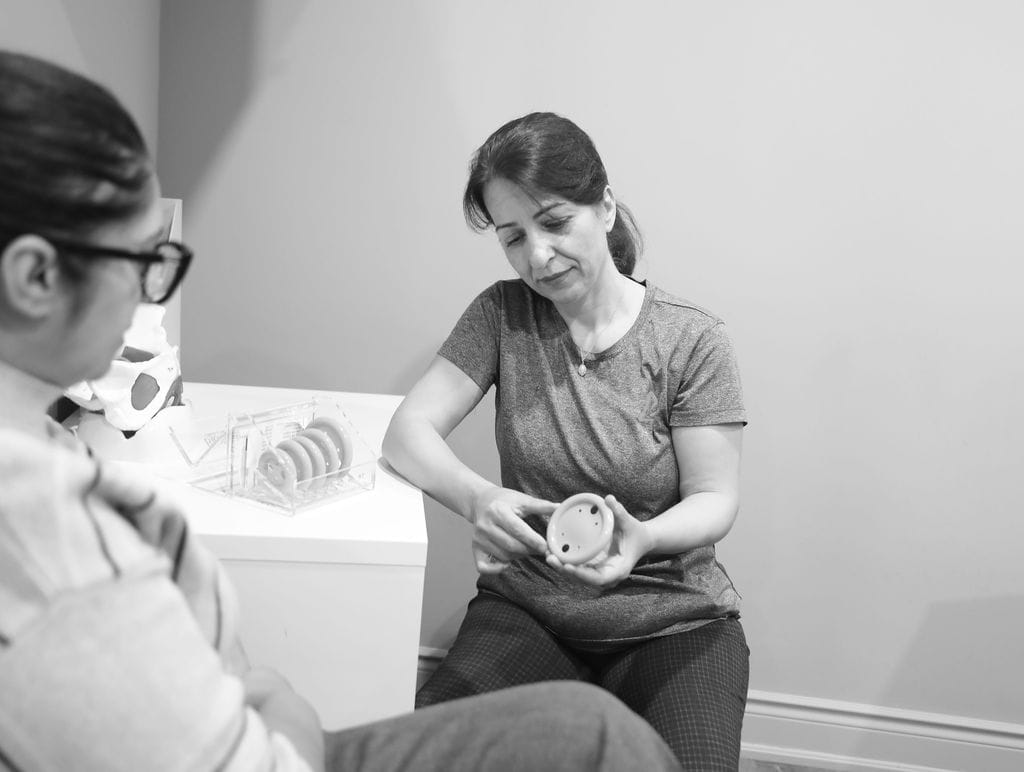
Pelvic floor physiotherapy focuses on treating the muscles, ligaments, and connective tissues of the pelvic floor which is a group of muscles that form a supportive hammock-like structure at the base of the pelvis. They play a key role in maintaining continence, supporting the pelvic organs, and providing stability to the spine and hips.
Pelvic floor physiotherapy involves a range of exercises, manual therapy techniques, and education to help individuals with pelvic floor dysfunction. Common conditions that may benefit from pelvic floor physiotherapy include:
- urinary and fecal incontinence,
- pelvic pain,
- pelvic organ prolapse, and
- sexual dysfunction.
Why am I suffering from a low libido? Can pelvic floor physiotherapy help?
Many women experience a decrease in sexual desire at some point in their lives. This can be caused by a variety of factors, including stress, hormonal imbalances, and relationship issues. To manage low libido, it’s important to address any underlying issues and make self-care a priority. This can include:
- practicing stress-management techniques,
- getting enough sleep, and
- engaging in regular exercise.
Why does it hurt to have sex?
Painful intercourse, also known as dyspareunia, is a common sexual health dysfunction in women. It can be caused by a variety of factors, including vaginal dryness, infections, and hormonal imbalances. To manage painful intercourse, it’s important to work with a healthcare provider to identify the underlying cause and develop a treatment plan. This may include using:
- lubricants,
- treating infections,
- or using hormonal therapy.
I struggle to orgasm during sex, why does that happen?
Many women struggle to achieve orgasm during sexual activity which can be caused by a variety of factors, including, stress, relationship issues, and hormonal imbalances. To manage orgasmic dysfunction, it’s important to work with a healthcare provider or therapist to address any underlying issues and develop strategies for improving sexual function. This may include:
- practicing mindfulness or
- engaging in self-exploration techniques.
My vagina feels like a fort that is impenetrable. Why can I not have sexual intercourse?
Vaginismus is a condition in which the muscles of the vaginal wall contract involuntarily, making intercourse difficult or impossible. It can be caused by a variety of factors, including past trauma and anxiety. To manage vaginismus, it’s important to work with a healthcare provider or therapist to address any underlying issues and develop strategies for managing anxiety and relaxing the pelvic floor muscles.
What is vulvodynia? Do I need pelvic floor physiotherapy?
Vulvodynia is a chronic pain condition that affects the vulva, or external genitalia. It can cause burning, stinging, or itching sensations, and can make sexual activity painful or uncomfortable. To manage vulvodynia, it’s important to work with a healthcare provider to identify the underlying cause and develop a treatment plan. This may include:
- using topical creams or medications,
- practicing relaxation techniques, or
- seeing a pelvic health physiotherapist.
Help! I pee my pants!

Urinary incontinence is a common condition in which urine leaks from the bladder involuntarily. It can be caused by a variety of factors, including hormonal changes, pregnancy, and pelvic floor dysfunction. To manage urinary incontinence, it’s important to work with a healthcare provider or pelvic floor physiotherapist to develop a treatment plan. This may include:
- pelvic floor exercises,
- bladder training, or
- medications.
What are the signs of menopause?
Menopause can cause a variety of changes in sexual function, including vaginal dryness, decreased libido, and painful intercourse. To manage these changes, it’s important to work with a healthcare provider to develop a treatment plan. This may include:
- using hormonal therapy,
- vaginal moisturizers, or
- engaging in regular sexual activity to maintain pelvic floor health.
Where can I find a pelvic health physiotherapist near me?
We have 8 locations with pelvic health physiotherapists to help you.
- Pelvic Health Physiotherapy Etobicoke – Triangle Physiotherapy Etobicoke
- Oakville Pelvic Health – Triangle Physiotherapy Oakville
- Pelvic Health Physiotherapy North York – Triangle Physiotherapy North York
- Mississauga Pelvic Health – Triangle Physiotherapy Mississauga
- Downtown Pelvic Health – Triangle Physiotherapy King West
- Uptown Toronto Pelvic Health – Triangle Physiotherapy Lawrence Park
- Pelvic Physiotherapy Downtown Toronto – Triangle Physiotherapy Queens Quay
- Mississauga Pelvic Health – Triangle Physiotherapy Erin Mills
In conclusion…
Many women experience sexual health dysfunctions at some point in their lives, but they may feel embarrassed or ashamed to seek help. It’s important to remember that sexual health is an important aspect of overall health and well-being, and it’s important to prioritize it in your self-care routine. If you’re experiencing any issues related to sexual function, don’t hesitate to talk to your healthcare provider or a therapist about your options. Remember, there is help!
Click here to book your consultation with one of our knowledgeable and compassionate pelvic health physiotherapists.
“Pelvic floor physiotherapy is essential for improving sexual health and overall well-being. Triangle Physiotherapy offers specialized pelvic health services across the GTA, including Physiotherapy in Etobicoke, Oakville, North York, Toronto, Lawrence Park, Queens Quay, Erin Mills, Mississauga, and Liberty Village. Our experienced team can help you address pelvic floor issues and enhance your sexual health through personalized treatment plans.”
Written by Roshni Ravi, Pelvic Health Physiotherapist
Have you ever experienced pain with sex? A burning sensation during or afterwards, a sharp pain or general discomfort? A lot of these symptoms point towards a common condition called dyspareunia. This is also known as pain with intercourse. It is a common condition postpartum, during menopause or even just due to general pelvic floor dysfunction.
But don’t worry, there are ways to alleviate the discomfort and enjoy a fulfilling sex life again! One of the most effective methods is through pelvic health physiotherapy.
Pelvic health physiotherapy involves working with a trained professional to strengthen and stretch the muscles in your pelvic floor, which can become weakened or tight due to a variety of factors. By doing so, you can improve your pelvic floor function and reduce pain during sex.
When it comes to sexual dysfunction, pelvic physiotherapy can be an effective treatment option for women. Pelvic physiotherapy can help address issues such as pain during intercourse, difficulty achieving orgasm, or vaginismus (involuntary contraction of the vaginal muscles).
What does a treatment session entail?
During a pelvic physiotherapy session, you’ll typically undergo an initial evaluation where your therapist will assess your pelvic floor muscles and create a personalized treatment plan. The exercises and techniques used will vary depending on your specific needs and goals, but they may include:

- Pelvic floor relaxation exercises
- Deep breathing
- Yoga based therapy
- Functional strengthening such as squats
- Biofeedback and/or muscle stimulation
It’s important to note that pelvic physiotherapy isn’t a quick fix and may take several sessions to see results. However, with dedication and commitment, it can significantly improve your quality of life and sexual function. So if you’re experiencing dyspareunia, don’t suffer in silence. Talk to your healthcare provider about pelvic physiotherapy and take the first step towards a happier, healthier you.
Book your consultation with a pelvic health physiotherapist today. We have pelvic health physiotherapists at all eight of our locations.
Where can I find a pelvic health physiotherapist near me?
We have 8 locations with pelvic health physiotherapists to help you.
- Pelvic Health Physiotherapy Etobicoke – Triangle Physiotherapy Etobicoke
- Oakville Pelvic Health – Triangle Physiotherapy Oakville
- Pelvic Health Physiotherapy North York – Triangle Physiotherapy North York
- Mississauga Pelvic Health – Triangle Physiotherapy Mississauga
- Downtown Pelvic Health – Triangle Physiotherapy King West
- Uptown Toronto Pelvic Health – Triangle Physiotherapy Lawrence Park
- Pelvic Physiotherapy Downtown Toronto – Triangle Physiotherapy Queens Quay
- Mississauga Pelvic Health – Triangle Physiotherapy Erin
“Revitalizing your relationship and reclaiming your sex life can be achieved with the help of pelvic floor physiotherapy. Triangle Physiotherapy offers specialized services across the GTA, including Physiotherapy in Etobicoke, Oakville, North York, Toronto, Lawrence Park, Queens Quay, Erin Mills, Mississauga, and Liberty Village. Our experienced team can help you address pelvic floor issues and enhance intimacy through personalized treatment plans.”
Written by Roshni Ravi, Pelvic Health Physiotherapist
Stress incontinence is a type of urinary incontinence that occurs with physical activity or exertion. This can be from coughing, sneezing, laughing or exercise e.g. jumping. All of these actions can put pressure on the bladder thereby causing leaks. The pelvic floor is important in preventing this leaks and supporting the bladder.
Pelvic floor exercises such as a kegel are commonly recommended for leaks. However, a lot of time the pelvic floor is actually tight rather than weak. Reverse Kegels involve relaxing the pelvic floor muscles, allowing them to lengthen and release tension. This helps to prevent over-tightening and over-activity of the pelvic floor muscles, which can contribute to stress incontinence.

Hypertonic pelvic floor
Hypertonic pelvic floor refers to a condition where the pelvic floor muscles are in a state of excessive and persistent contraction. This can lead to a number of symptoms, including pelvic pain, urinary and fecal incontinence, and sexual dysfunction.
Hypertonic pelvic floor can be caused by a number of factors, including pregnancy, childbirth, surgery, chronic constipation, and chronic pelvic pain. It can also be a result of excessive or improper use of pelvic floor muscle exercises, such as Kegels.
Treatment for Hypertonic pelvic floor
Treatment for hypertonic pelvic floor typically involves a combination of physical therapy and relaxation techniques. Physical therapy may include manual therapy to release muscle tension, as well as exercises to stretch and relax the pelvic floor muscles. Relaxation techniques, such as deep breathing, progressive muscle relaxation, and biofeedback, can also be helpful in reducing muscle tension.
If you’re experiencing leaks, reach out to a pelvic floor therapist for an assessment or discovery call!
FAQ’s about Stress Incontinence
Q: What is stress incontinence?
A: Stress incontinence is a type of urinary incontinence that occurs when pressure is placed on the bladder, such as during coughing, sneezing, laughing, or exercising, and causes involuntary urine leakage.
Q: What causes stress incontinence?
A: Stress incontinence is typically caused by weakened pelvic floor muscles and/or a weakened urethral sphincter, which can occur due to aging, pregnancy and childbirth, menopause, obesity, chronic coughing, or certain medical conditions.
Q: Who is at risk for developing stress incontinence?
A: Women are more likely to develop stress incontinence than men, especially those who have gone through pregnancy and childbirth, menopause, or pelvic surgery. Other risk factors include obesity, chronic coughing, and certain medical conditions that affect the bladder or nervous system.
Q: How is stress incontinence diagnosed?
A: Stress incontinence can be diagnosed through a physical exam, a urine test, and other tests such as a bladder diary or urodynamic testing.
Q: What are the treatment options for stress incontinence?
A: Treatment options for stress incontinence may include:
- pelvic floor exercises,
- behavioral therapies,
- medications,
- medical devices such as pessaries, and in some cases,
- surgery.
Q: Can stress incontinence be prevented?
A: While stress incontinence may not be completely preventable, there are steps you can take to reduce your risk. Maintaining a healthy weight, doing regular pelvic floor exercises, and avoiding smoking and excessive caffeine consumption are some of these.
Q: Is stress incontinence a normal part of aging?
A: While stress incontinence is more common in older adults, it is not a normal part of aging and should not be ignored or accepted as an inevitable consequence of getting older. Treatment options are available, and seeking help from a healthcare provider is important.
Managing stress incontinence effectively involves a combination of pelvic floor exercises, lifestyle changes, and sometimes physiotherapy. For those seeking professional physiotherapy services to help manage incontinence and improve pelvic health, there are clinics in physiotherapy Etobicoke, Oakville, North York, Toronto, Lawrence Park, Queens Quay, Erin Mills, Mississauga, and Liberty Village. These clinics offer expert care and personalized treatment plans to help you achieve a leak-free life and enhanced quality of life.
Written by Roshni Ravi, Pelvic Health Physiotherapist
Constipation is a common gastrointestinal (GI) condition that causes difficulty with passing stool or reduces the frequency of having a bowel movement. It can be caused by
– dehydration
– diet e.g. not enough fibre
– sedentary lifestyle
– Ignoring the urge for a bowel movement due to pain.
– Pelvic organ prolapse (POP)
– Medications such as anti-inflammatories, iron supplements or anti depressants.

Medically, constipation is defined as having fewer than 3 bowel movements a week with hard stools.
Pelvic muscle dyssynergia (incoordination) can lead to constipation. During a typical bowel movement, the pelvic floor needs to relax in order to evacuate stool. When there is tightness in the pelvic floor muscles, it can be painful or uncomfortable to pass stool.
Treatment for constipation can include a number of lifestyle modifications such as increased fibre and water intake, and regular exercise. However, consulting with a pelvic physiotherapist can improve outcomes, by creating an exercise program specific to your pelvic floor dysfunction. The need for lengthening versus strengthening of the pelvic floor is determined through internal vaginal or rectal examination. Another option is seeing a naturopath for ways to adjust your diet accordingly. Quite often, both treatments go hand in hand.
Experiencing constipation or constipation like symptoms? Book a consultation with one of our pelvic physiotherapists today!
“Pelvic physiotherapy can be an effective solution for relieving constipation and improving overall pelvic health. Triangle Physiotherapy offers specialized services across the GTA, including Physiotherapy in Etobicoke, Oakville, North York, Toronto, Lawrence Park, Queens Quay, Erin Mills, Mississauga, and Liberty Village. Our experienced team can help you develop a personalized treatment plan to address constipation and enhance your quality of life.”






